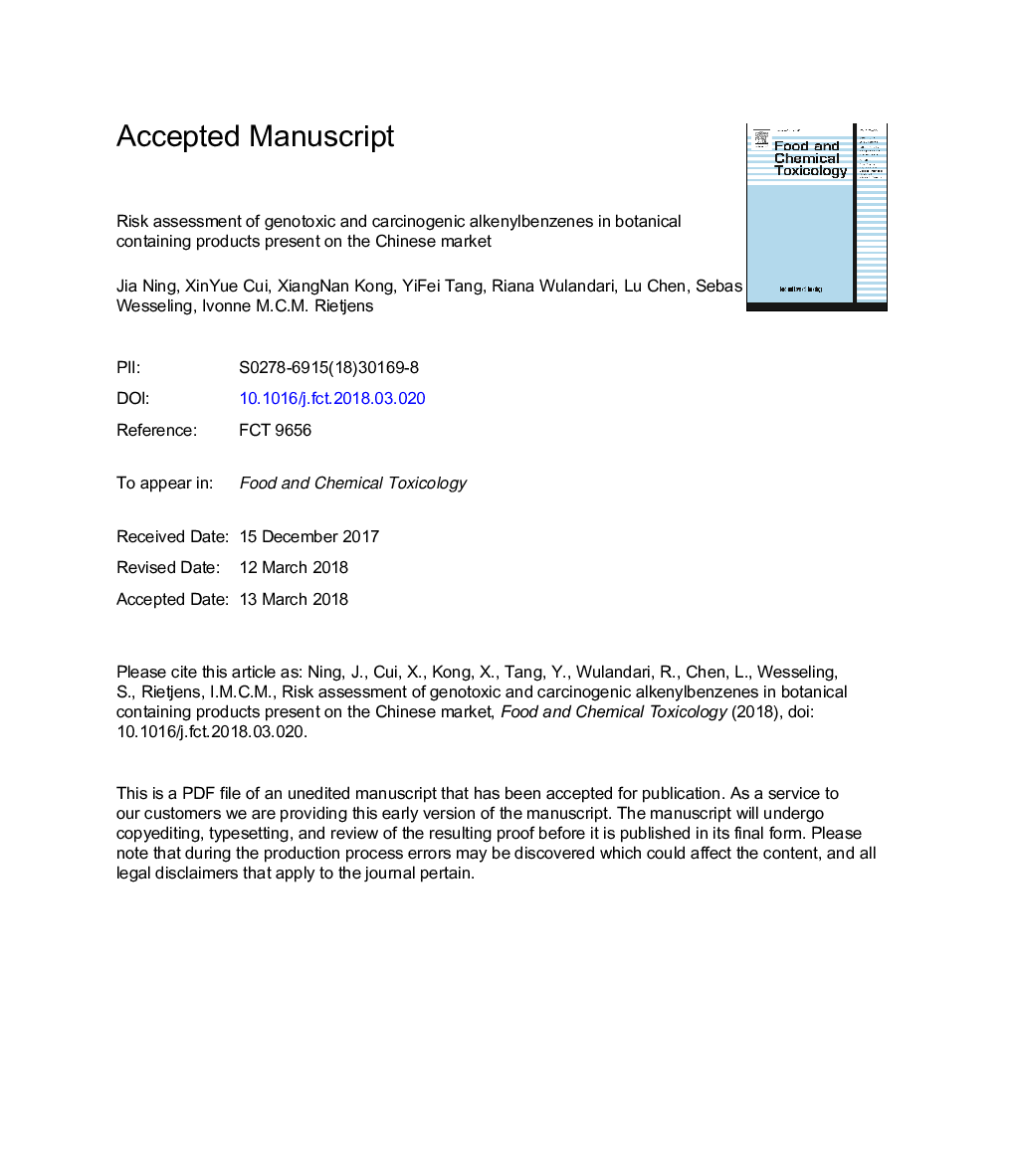| Article ID | Journal | Published Year | Pages | File Type |
|---|---|---|---|---|
| 8547552 | Food and Chemical Toxicology | 2018 | 52 Pages |
Abstract
In the present study, a risk assessment of plant food supplements (PFS), traditional Chinese medicines (TCM) and herbal teas containing alkenylbenzenes was performed using the Margin of Exposure (MOE) approach. The levels of alkenylbenzenes in botanical preparations collected on the Chinese market were quantified and the combined estimated daily intake (EDI) was determined using dose additivity. The combined EDI values obtained assuming equal potency of all alkenylbenzenes detected in the PFS, TCM and herbal teas were 0.3 to 14.3, 0.05 to 539.4 and 0.04 to 42.5â¯Î¼g/kgâ¯bw/day, respectively. Calculating combined EDI values taking into account the toxic equivalency (TEQ) approach, the values for PFS, TCM and herbal teas were 0.3 to 7.7, 0.05 to 278.0 and 0.02 to 16.5â¯Î¼g estragole equivalents/kg bw/day, respectively. The MOE values resulting from consumption of these PFS, TCM and one cup of herbal tea per day during life-time were generally lower than 10â¯000, suggesting a potential priority for risk management. For short-term exposure such as two weeks consumption, applying Haber's rule, only one TCM 6 (åç¥ä¸¸) still had an MOE value below 10â¯000. It is concluded that selected consumption of Chinese botanical preparations raise a concern because of exposure to alkenylbenzenes, especially when exposure is for longer periods of time.
Keywords
Related Topics
Life Sciences
Agricultural and Biological Sciences
Food Science
Authors
Jia Ning, XinYue Cui, XiangNan Kong, YiFei Tang, Riana Wulandari, Lu Chen, Sebas Wesseling, Ivonne M.C.M. Rietjens,
